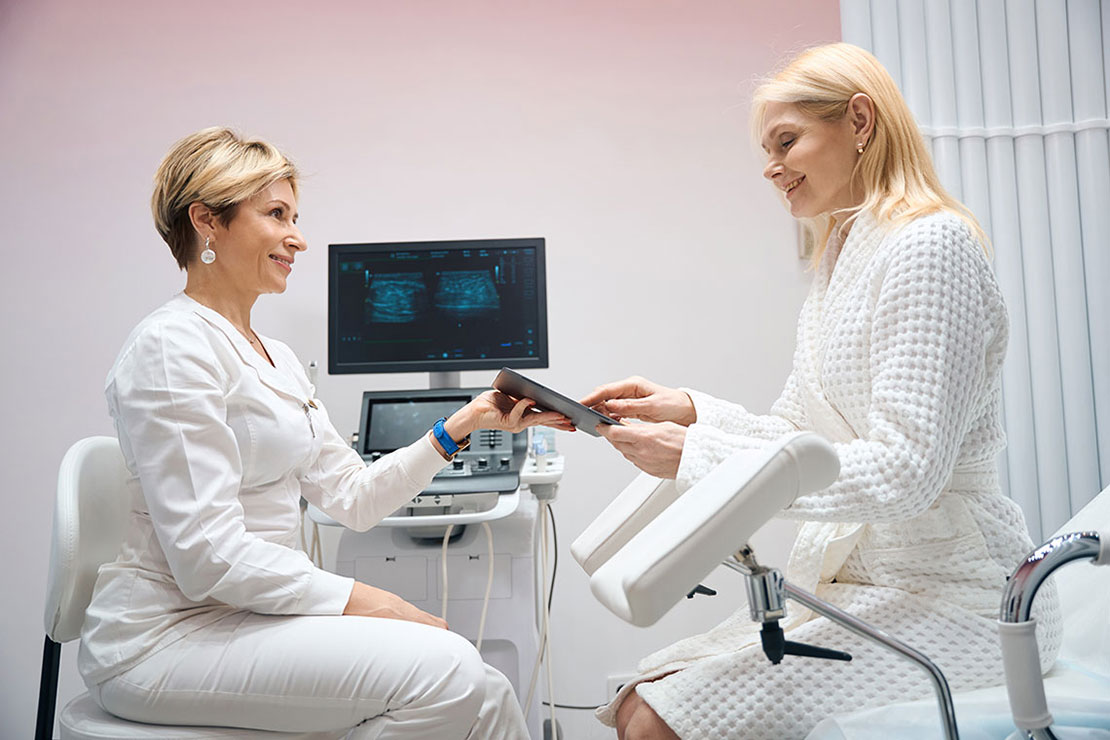
Women’s health is about more than addressing issues when they arise. It’s about taking proactive steps to ensure your well-being through every stage of life. Routine gynecological exams and screenings are essential tools for maintaining your reproductive health, detecting potential problems early, and fostering a lifelong relationship with your healthcare provider.
Let’s explore why these exams are vital, what to expect during a visit, and how they empower you to take charge of your health.
Why Routine Gynecological Exams Matter
Gynecological exams are more than check-ups—they’re opportunities to ensure your reproductive system is functioning optimally and to identify potential health issues before they become serious. Here’s why these exams are so crucial:
Early Detection of Health Issues
- Cervical Cancer Screening: Regular Pap smears help detect cervical cancer in its earliest, most treatable stages.
- Breast Health Monitoring: Your provider can identify changes in breast tissue and recommend mammograms based on your age and risk factors.
- Reproductive Disorders: Exams can reveal conditions like fibroids, ovarian cysts, and endometriosis early, allowing for timely intervention.
Preventive Care
- Vaccinations, like the HPV vaccine, can be administered to protect against viruses linked to cancer.
- Discussions about contraception, family planning, and lifestyle habits ensure you’re supported at every stage of life.
Monitoring Hormonal Health
- Hormonal imbalances can affect everything from your menstrual cycle to your mood and energy levels. Routine visits help identify these issues and guide treatment options.
What to Expect During a Routine Gynecological Exam
If you’re feeling unsure about what happens during a gynecological exam, you’re not alone. Here’s a breakdown of what to expect:
Medical History Discussion
- Your provider will ask about your menstrual cycle, sexual activity, family history of health conditions, and any symptoms you’ve noticed.
- Open communication is key to tailoring your care.
Physical Exam
- Breast Exam: Checks for lumps or abnormalities in breast tissue.
- Pelvic Exam: Assesses the health of your reproductive organs, including the uterus and ovaries.
Screenings and Tests
- Pap Smear: Collects cells from the cervix to screen for abnormalities or precancerous changes.
- HPV Testing: May be performed alongside a Pap smear for women over 30 or those at higher risk.
- Additional tests, like STI screenings, can be done based on your age, risk factors, and sexual history.
Discussion and Guidance
- Your provider will discuss the results of your exam and any necessary follow-ups.
- This is a great time to ask questions about contraception, fertility, menopause, or any other concerns.
When to Start and How Often to Schedule Visits
Understanding when and how frequently to see your gynecologist ensures you’re receiving appropriate care at every stage of life.
Adolescence and Early Adulthood
- First Visit: Recommended between ages 13 and 15, focusing on education rather than exams.
- Annual Visits: Begin pelvic exams and Pap smears at age 21, or earlier if sexually active.
Midlife and Beyond
- Continue annual visits to monitor for conditions like osteoporosis and menopausal symptoms.
- Screenings like mammograms become increasingly important after age 40.
Frequency of Pap Smears
- Women aged 21-29: Every 3 years.
- Women aged 30-65: Every 3-5 years, depending on whether HPV testing is included.
Common Misconceptions About Gynecological Exams
There are many myths about routine exams that can discourage women from scheduling appointments. Let’s address a few:
"I Don’t Need an Exam Unless Something Is Wrong."
- Many reproductive health issues show no symptoms in their early stages. Routine exams catch problems before they escalate.
"Pap Smears and Pelvic Exams Are the Same Thing."
- While both are part of gynecological care, a Pap smear is a specific test for cervical abnormalities, whereas a pelvic exam evaluates the overall health of reproductive organs.
"Gynecological Exams Are Only for Women Who Are Sexually Active."
- Routine exams are essential regardless of sexual activity, as they address a wide range of health concerns.
How Routine Exams Empower Women
Routine gynecological care is more than a medical necessity—it’s a form of empowerment. Here’s how:
Building a Relationship with Your Provider
- A trusted gynecologist becomes a partner in your health, providing guidance and support tailored to your unique needs.
Gaining Knowledge
- Understanding your body and how to care for it helps you make informed decisions about your health and well-being.
Taking Control
- Preventive care puts you in charge, allowing you to address potential issues proactively rather than reactively.
Tips for Preparing for Your Exam
A little preparation can make your gynecological visit more comfortable and productive:
Plan Ahead
- Schedule your appointment for a time when you’re not on your period, if possible.
- Write down any symptoms or questions you want to discuss.
Relax
- Remember that your provider is there to help and create a judgment-free space.
- Wear comfortable clothing to make changing for the exam easier.
Be Honest
- Open communication about your health history and lifestyle ensures you get the best possible care.
Conclusion
Routine gynecological exams and screenings are a cornerstone of women’s health, providing a proactive approach to maintaining well-being. From early detection of health issues to personalized guidance, these visits empower women to take control of their reproductive health and overall quality of life.
Don’t wait for symptoms to arise—schedule your next gynecological exam today. At Dr. Nader and Associates, our experienced team is dedicated to providing compassionate, comprehensive care for women at every stage of life. Your health is worth it.

